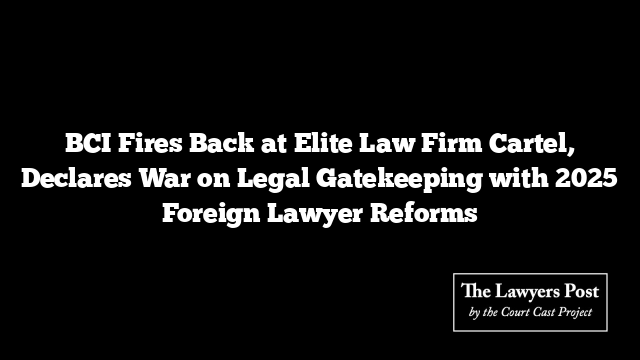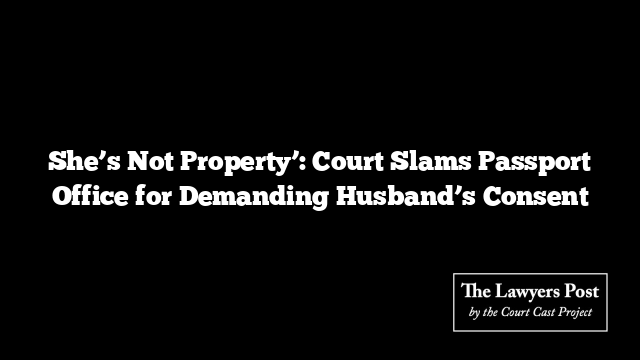In a sweeping act of regulatory defiance, the Bar Council of India (BCI) has flung open the doors to international legal participation — but with a catch: the era of dynastic monopoly in Indian corporate law is over.
Responding to murmurings from the Society of Indian Law Firms (SILF), which has long been accused of operating as an elite coterie for a select few mega-firms, the BCI’s latest 2025 amendments to its Foreign Lawyers and Law Firms Regulations take deliberate aim at power concentration in India’s legal industry. A press note issued on June 18 pulls no punches — SILF, according to the BCI, is more of an exclusive club than a representative body.
“The 2025 Regulations aren’t about surrendering legal sovereignty,” says the BCI. “They’re about smashing monopolies, deconstructing closed-door cultures, and giving young, talented Indian lawyers the international platforms they’ve been denied for decades.”
The changes don’t allow foreign lawyers or firms to wade into Indian courtrooms or practice Indian law. Instead, the rules confine them strictly to advisory roles on matters like foreign law, international public and private law, and international arbitration — and even that requires a government-issued No Objection Certificate. Drafting contracts for Indian courts? Out. Title investigation? Forbidden. Appearances in tribunals? Not a chance.
What’s permitted? Limited advisory work, carefully fenced in. Think: foreign lawyers consulting on lease agreements for their own office setup, or advising their multinational clients during cross-border arbitrations involving foreign or international law. That’s it. No litigation, no document filings, no Indian legal opinions.
And if a foreign firm steps outside the prescribed boundaries? The consequences will be swift: suspension, debarment, financial penalties — even disciplinary or criminal action, depending on the breach.
But at the heart of the BCI’s broadside is a clear message: Indian law cannot remain the fiefdom of a privileged few. SILF, the Council asserts, has refused elections for years and cannot claim to speak for a profession it refuses to democratically represent. The foreign legal work pipeline, historically dominated by a handful of firms with longstanding foreign ties, will now be rerouted to allow newer, regional, and ambitious law practices their fair share.
To institutionalize this democratization, the BCI is building a centralized registry of Indian law firms and laying the groundwork for a nationally elected body with true regional representation. A national conference in Mumbai this September is already in the works, aimed at hearing directly from emerging and smaller firms — the ones left outside the gate all these years.
Interestingly, the very committee formed to shape this legal evolution includes heavyweight names like Cyril Shroff, Ajay Bahl, Suhail Nathani, and others — individuals who themselves helm some of the most influential firms in the country. But their mandate is now broader: consultation with all stakeholders, not just the big players.
Despite repeated calls from the BCI for reasoned dialogue, SILF has, according to the Council, offered only vague rhetoric, failing to engage in constructive or clause-specific debate. Its accusations — that Indian legal practice is under threat — are brushed aside by the BCI as self-serving alarmism.
These new rules, the Council emphasizes, were not hurried. They were shaped after legal vetting, comparative research on international standards, and with diplomatic considerations in mind. More importantly, they are legally in force, unchallenged by any court, and here to stay.
Any attempt to bypass them, whether by Indian or foreign entities, will be dealt with firmly. The message is unambiguous: evolve or step aside.
At its core, the BCI’s 2025 pivot isn’t just about foreign law firms. It’s about reimagining the Indian legal profession itself — breaking down artificial hierarchies, redistributing opportunity, and inviting a new generation of legal talent to the global stage without needing a gilded last name or an old boys’ network to get there.





